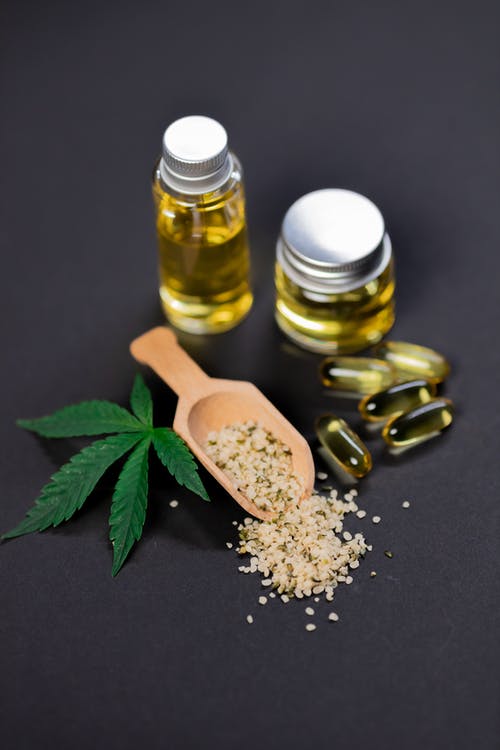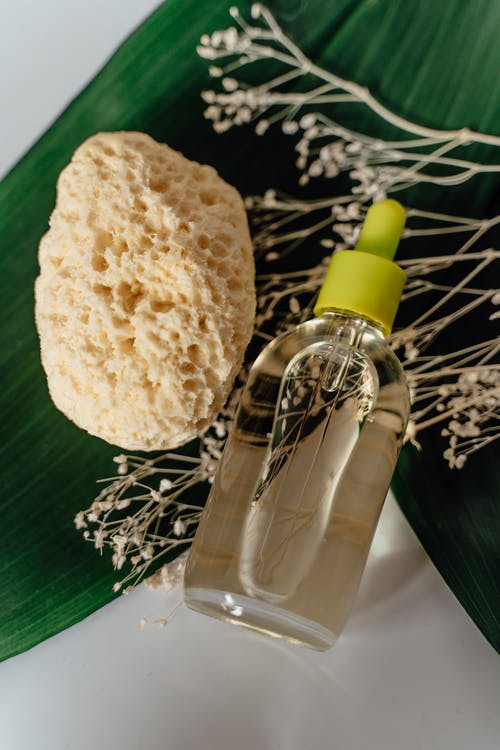Arthritis is a condition affecting the joints (areas where your bones meet and move). Arthritis is typically characterized by joint inflammation or degeneration (breakdown). When you use the joint, these changes can produce pain.

Arthritis is most frequent in the following body parts:
- Feet
- Hands
- Hips
- Knees
- The lower back
CBD oil is made out of cannabis plant components. Some people use CBD oil to treat pain caused by chronic illnesses such as arthritis.
CBD and Arthritis
Sunday Scaries CBD has previously been used to treat and alleviate various medical ailments, including insomnia, anxiety and depression, nausea, and chronic pain. Arthritis is within the category of chronic pain conditions. While health experts and journalists like those at Rolling Paper have written about it, the research is still in its early stages. Still, the preliminary findings are encouraging.
Traditional arthritis medicine differs but usually consists of a combination of several options:
- Analgesics to alleviate discomfort.
- NSAIDs (nonsteroidal anti-inflammatory medications) to lessen inflammation.
- Anti-irritants to prevent pain signals from being transmitted.
- Corticosteroids, which suppress our immune system and reduce inflammation.
- Biologic response modifiers, which target different proteins involved in the immune response.
DMARDs (disease-modifying antirheumatic medicines) are medications that prevent your immune system from attacking the joint.
How does CBD help arthritis?
CBD oil influences brain activity, but not the same way that THC, marijuana’s crucial intoxicating element, does. CBD oil works by interacting with two receptors known as CB1 and CB2 to relieve pain and inflammation.
CB2 is also involved in your immune system. RA is characterized by your immune system attacking the tissue in your joints. This connection to the immune system may explain why CBD oil appears to function well for RA symptoms.
Furthermore, CBD’s anti-inflammatory actions may aid in slowing or stopping the progression of RA, which causes lasting damage to your joints over time. These benefits may help alleviate several other inflammatory-related RA symptoms, such as fatigue and fever.

CBD as a therapy for the adverse effects of arthritis
Arthritis is a complex autoimmune disease that causes your body to attack joints, destroying bone and cartilage over time, resulting in losing joint function and stability. While arthritic symptoms vary based on the individual and the severity of the disease progression, several common side effects are typically encountered by everyone.
1. Long-term pain chronic
Pain can be caused by some injury or sickness such as arthritis and is defined as severe pain that lasts for several months and persists even after full recovery. While the severity of chronic pain varies depending on the individual, it can be severe and significantly impact the quality of life of an arthritis patient.
2. Inflammation and swelling
Cannabinoids, such as CBD, have been shown to decrease inflammatory reactions, which can help to alleviate arthritic symptoms. Cannabinoids have dominant capabilities that regulate pathways that involve the inhibition of cytokines in inflammatory areas and the activation of apoptosis within immune cells. As a result, experts believe CBD could be a helpful preventative treatment for disorders involving persistent inflammation within the body, such as arthritis. More research, however, is required.
3. Appetite suppression
Another common side effect of arthritis is a lack of appetite or weight loss due to acute pain and stiffness, which can directly impact the patient’s quality of life, mood, metabolism, and preference for food or eating. Some arthritis drugs might also suppress appetite, leading to accidental weight loss.
A 2016 study discovered that the medicine leflunomide, routinely provided to people living with rheumatoid arthritis, was connected with weight loss. That is because leflunomide can produce nausea, diarrhea, and changes in bowel habits, all of which can impact weight management.
Another study looked into the link between CBD and nausea and discovered some interesting results. According to 2011 research, CBD and its interaction with the endocannabinoid system regulate and reduce vomiting and nausea in animals and humans.
How Do You Treat Arthritis?
1. Medications
Your doctor will prescribe medications after accessing the severity of your symptoms and the length of time you’ve had rheumatoid arthritis.
NSAIDs:- Nonsteroidal anti-inflammatory medications (NSAIDs) can be used to treat pain and inflammation. Ibuprofen (Advil, Motrin IB, and others) and naproxen sodium are examples of over-the-counter NSAIDs (Aleve). Prescription-only NSAIDs are available.
Agents biologics: This newest class of DMARDs, often known as biologic response modifiers, comprises abatacept (Orencia), adalimumab (Humira), anakinra (Kineret), certolizumab (Cimzia), etanercept (Enbrel), golimumab (Simponi), infliximab (Remicade), rituximab (Rituxan), sari (Actemra).
When used with a conventional DMARD, such as methotrexate, biologic DMARDs are usually the most successful. This sort of medication also raises the risk of infection.
2. Therapy
Your doctor may send you to a physical or occupational therapist, who will teach you exercises to maintain your joint flexibility. The therapist may also recommend new ways to perform daily duties that are less taxing on your joints. You might want to take up an object with your forearms, for example.
Assistive gadgets can help you prevent overstressing your sore joints. For example, a kitchen knife with a hand handle protects your finger and wrist joints. Specific equipment, such as buttonhooks, can make dressing easier. Catalogs and medical supply stores are excellent sources of inspiration.
3. Surgery
If drugs do not prevent or reduce joint damage, you and your doctor may discuss surgery to restore damaged joints. Surgery may help you regain the use of your joint. It can also help with pain and function.
Surgery for rheumatoid arthritis may include one or more of the following procedures:
- Synovectomy: Surgery to remove the inflammatory joint lining (synovium) can help relieve discomfort and improve joint flexibility.
- Tendon repair: Tendons around your joint may loosen or rupture due to inflammation and joint injury. Your surgeon might be able to restore the tendons that surround your joint.
- Joint fusion: When a joint replacement is not an option, surgically fusing a joint may be indicated to stabilize or realign a joint and provide pain relief.
Conclusion
CBD appears to promise to lower the usual side effects and symptoms of arthritis by interacting with the ECS to reduce inflammation and pain perception.
As a result, many arthritis patients are beginning to utilize and experience cbd flower benefits in addition to standard therapy. While the present study is promising, further research is needed to expand CBD’s global therapeutic application.















































